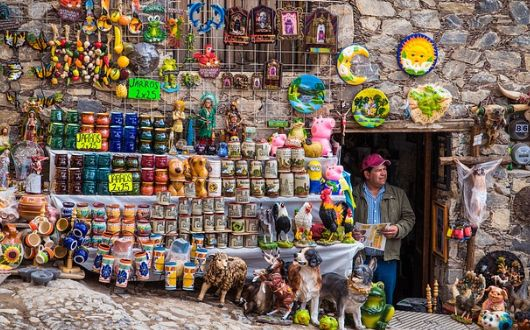
Characteristics of Small Business – The small business have various forms and sizes. They are known for the promotion of entrepreneurship and utilisation of indigenous technology. They also ensures appropriate location of industries. Small enterprises includes; small machine shops, business centers, restaurants and many others. They operate in very different markets and social environments. Some may be modern while others maybe traditional in their mode of operation.
Most times, small business can be family business or self employed persons operating in the semi-formal and informal sectors with little or no chance of growing into a large scale firm. They have a lower limit of employment in a particular firm. Small scale Enterprises are managed by their owners and not through a formalized structure. They have a relatively small share of the market place. In Nigeria, small business tends to dominate the industrial sector. Having known all these, let us get into summing up the major characteristics or features of small business.
Characteristics of Small Business
1. Labour Intensity
Small scale businesses are labour intensive when compared with the amount of capital employed. They tend to have more units of labour employed per unit of Capital. This is mostly observed in developing countries where labour is very high due to population growth. To cater for their labour needs, they are mostly found in semiurban and rural areas. The major source of their labour is through apprenticeship and family members.
2. Large Share of Employment
Small businesses accounts for a larger share of employment in developing countries. They employ both the young and old population of the labour Force. This can be attributed to the more easily accessible way of getting such jobs. In developing country like Nigeria, small scale enterprises have a greater percentage of employment share in the industrial sector.
3. Age Distribution
Small scale businesses employs those within the normal working age and those outside of it. They comprises retirees from public and Private sectors who are still eager to engage themselves in a source of livelihood. Most of these businesses are established by their respective owners.
4. Gender Distribution
In most developing countries, more women are employed in the small scale enterprises than in the large and medium scale enterprises. This sector is mostly dominated by women most especially in the commerce and service related activities. They can be found in areas such as food processing, catering, petting trading, tailoring, hairdressing and others. They take up these activities so that they may have the time to carry out their traditional roles in the family and society.
5. Skill and Activities
Small businesses is characterized by both unskilled and semi-skilled labour. This is often found in small ones that are not registered or financially capable of paying their employees. These categories of labour are found in village blacksmiths, roadside mechanics, artisans who works in open spaces, welders, tailors and so many others.
6. Educational Level
In Nigeria for Instance, the small business sector is mostly dominated by primary school leavers. Most of them who are unable to proceed with their education engages in entrepreneurship as a means of survival. Others may go and serve artisans, craftsmen of other small scale businesses for a number of years and at the end of their contract, they maybe settled. The proportion of others are paid a stipulated amount at the end of every month.
7. Job Continuity
The durability of a job most times increases with the size of the firm. Small businesses most times comes to an end after the death of the owner. Financial shortages can also make small firms to stop operation.
It is good to know the background information of small businesses because of its importance to a country. Characteristics of small business therefore x-rays what makes up a small firm.
Also See; Why Small Business is Important to a Country’s Economy
Problems Facing Small and Medium Enterprises in Nigeria and Solutions
